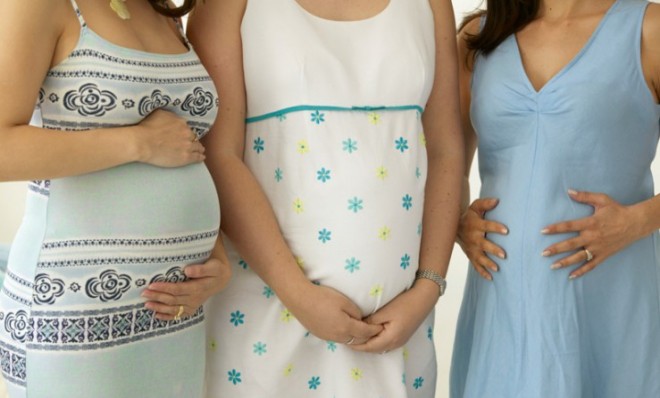The secret to a longer life: Having kids?
Child-rearing is stressful business, but a large new Danish study suggests that breeding can add years to your life

A free daily email with the biggest news stories of the day – and the best features from TheWeek.com
You are now subscribed
Your newsletter sign-up was successful
The question: Does having children extend your lifespan? The U.S. birth rate recently hit its lowest point since 1920, arguably reflecting reports that many Americans are making the conscious decision to opt out of having children for personal and economic reasons. But these child-free Americans may be facing a trade-off, according to a new Danish study that examines the mortality rates of childless couples and parents — including adoptive ones — to see who ends up living longer.
How it was tested: Researchers at Denmark's Aarhus University studied more than 21,000 couples trying to become pregnant via in vitro fertilization (assisted reproduction) between 1994 and 2005. Over this time period, 15,210 children were born and another 1,564 were adopted. The goal, says lead researcher Esben Agerbo, was to compare the death rate within this controlled population of willing parents to the death rate of childless couples. "Several previous studies have found strong associations between childlessness and psychiatric illness," Agerbo told NBC News. "I think that our study is superior, because it is only based on people who want to have children, whereas previous research included everybody."
The outcome: 96 women and 200 men died over the course of the study. Comparatively speaking, women without children were four times more likely to die a premature death than mothers, while men without kids were twice as likely to die than fathers. "Mindful that association is not causation," wrote researchers, "our results suggest that the mortality rates are higher in the childless."
The Week
Escape your echo chamber. Get the facts behind the news, plus analysis from multiple perspectives.

Sign up for The Week's Free Newsletters
From our morning news briefing to a weekly Good News Newsletter, get the best of The Week delivered directly to your inbox.
From our morning news briefing to a weekly Good News Newsletter, get the best of The Week delivered directly to your inbox.
What experts say: Parents were found less likely to die from accidents, circulatory diseases, cancer, and other external factors. "Thus, I suggest a behavioral difference," said Agerbo. Perhaps non-parents are "more prone to buy a big motorcycle or a fast car than [a] family-friendly slow van." Or perhaps, conversely, parents are a little more willing to adopt healthier lifestyles in an effort to fulfill their child-rearing responsibilities. Agreed, says Alice Domar, a psychologist at Beth Israel Deaconess Medical Center in Boston. "When you have kids, it completely changes the way you live your life."
The lesson: This study lends credibility to previous research suggesting that having children — even if they do endlessly test your patience — can add years to your life.
A free daily email with the biggest news stories of the day – and the best features from TheWeek.com
-
 Political cartoons for February 14
Political cartoons for February 14Cartoons Saturday's political cartoons include a Valentine's grift, Hillary on the hook, and more
-
 Tourangelle-style pork with prunes recipe
Tourangelle-style pork with prunes recipeThe Week Recommends This traditional, rustic dish is a French classic
-
 The Epstein files: glimpses of a deeply disturbing world
The Epstein files: glimpses of a deeply disturbing worldIn the Spotlight Trove of released documents paint a picture of depravity and privilege in which men hold the cards, and women are powerless or peripheral